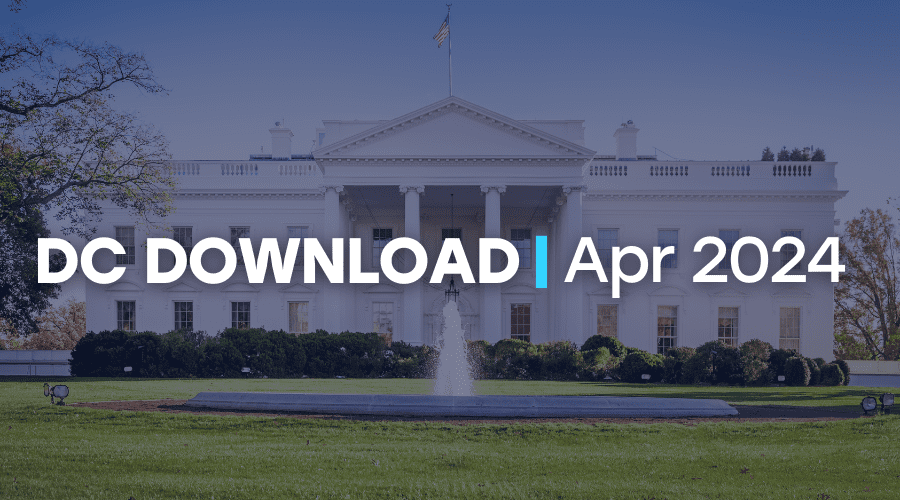Every summer, as Shark Week captures the nation’s imagination with tales of the ocean’s most formidable predators, Congress finds itself navigating its own deep waters of legislative challenges. Amidst this sea of policy debates, bills impacting the charitable sector make their way to the radar of Independent Sector’s policy team. Much like marine conservationists striving to protect sharks, the connection between these seemingly disparate worlds underscores a critical narrative: the intersection of governance, public interest, and the enduring impact of our sector in safeguarding our planet’s most vulnerable, whether beneath the waves or within our communities. In case you missed any of this policy action, here is your monthly recap of the top highlights for the charitable sector.
Federal Appropriations Update
The House Committee on Appropriations completed their work marking up the twelve Fiscal Year (FY) 2025 government spending bills. Now, these bills advance to the full House for consideration. The House has already passed four of the FY25 appropriations bills with an additional bill failing to pass, although committee leaders maintain that they are on track to wrap up their annual work ahead of the August recess. When Congress returns from recess, the Senate will begin their deep dive into these bills. Congress has until September 30, 2024, to pass the FY25 appropriations bills or — more likely — a continuing resolution to keep the government open. Although it is too early to say whether these bills will be enacted prior to the deadline, it is widely believed that there is little threat of a government shutdown, as neither party would want to enter the final stretch of election season with a government shutdown looming over Congress. Independent Sector will continue monitoring the progress of the appropriations bills as they work their way through Congress and to the President’s desk.
House Appropriations Bill Requests Additional Information for BLS Funding Request
On July 10, the House Committee on Appropriations advanced the FY25 Labor, Health and Human Services, and Education (LHHS) appropriations bill with language directing the Bureau of Labor Statistics (BLS) to include a cost estimate related to incorporating nonprofit workforce data into the Quarterly Census of Employment and Wages (QCEW) in their Fiscal Year 2026 budget justifications. Currently, the BLS only releases nonprofit wage and employment data every five years, with the most recent data having been released in 2017. As a result, public officials and nonprofit employers are forced to make decisions about organizational strategy and workforce projections without timely or accurate data. While the inclusion of this request in the FY25 House LHHS appropriations bill indicates some general awareness, Independent Sector and our allies will continue to advocate for $4-8 million to be included in the final LHHS appropriations bill for the BLS Office of Employment and Unemployment Statistics to begin incorporating nonprofit organizations in the QCEW later this year, rather than waiting until FY26.
Presidential Ticket Updates and Charitable Sector Issues
Both major political parties had developments on their campaign tickets in July, with potential relevance to the charitable sector. First, former President Trump announced Senator J.D. Vance (R-OH) as his running mate on July 15. During his short time in the U.S. Senate, Senator Vance has made alarming comments attacking foundation and university endowments, and has introduced legislation to dramatically increase the excise tax on large university endowments. On July 21, President Biden announced that he would no longer run for reelection and subsequently endorsed Vice President Kamala Harris for the Democratic nomination. As Vice President Harris quickly consolidated party support, her policy positions are largely expected to align with those of the Biden-Harris administration, although some observers have noted her 2020 campaign proposals for a financial transactions tax and an expanded Earned Income Tax Credit-like proposal for middle class families.
House Ways & Means Committee Advances Two Bills Targeting Universities
On July 9, the House Ways & Means Committee considered the University Accountability Act (H.R. 8914) and the Protecting American Students Act (H.R. 8913) which could threaten the tax-exempt status and the endowment tax calculation of universities across the country.
The University Accountability Act, led by Rep. Nicole Malliotakis (R-NY), would levy financial penalties of at least $100,000 against schools that have a civil judgement entered against them by a federal court for violating a student’s civil rights. After three civil rights violations, the IRS would be automatically required to review the college or university’s tax-exempt status for possible revocation. Rep. Brad Schneider (D-IL) expressed concern for this bill stating that, “Instead of focusing on funneling cases into litigation, we should be giving the Office of Civil Rights the resources to actually combat and defeat the anti-Semitism that is infecting our schools. Every student, wherever they are pursuing their academic advancement, should be able to grow and learn in an environment free of hate.”
The Protecting American Students Act, led by Rep. Drew Ferguson (R-GA), would amend the scope of the Endowment Tax calculation to only account for students eligible for federal financial assistance under the Higher Education Act. This includes students who are U.S. citizens, U.S. nationals, permanent residents, or students who can provide evidence that they are in the United States for other than a temporary purpose, while excluding students who are attending school in the United States on valid F-1 student visas. Rep. Judy Chu (D-CA) expressed concern that this bill would entice universities to reduce their number of international students, and that this policy would also impact DACA recipients as they would be categorized the same as international students.
Both H.R. 8913 and H.R. 8914 advanced out of the Ways & Means Committee by a partisan vote. Now that these bills have passed the committee, they may advance to the full House of Representatives for consideration. At this time, it is not expected that House Leadership will bring these bills to the floor for debate and a vote. IS will continue monitoring these bills and provide updates if they see additional movement.
Travis Swanson is the Government Relations Manager at Independent Sector



